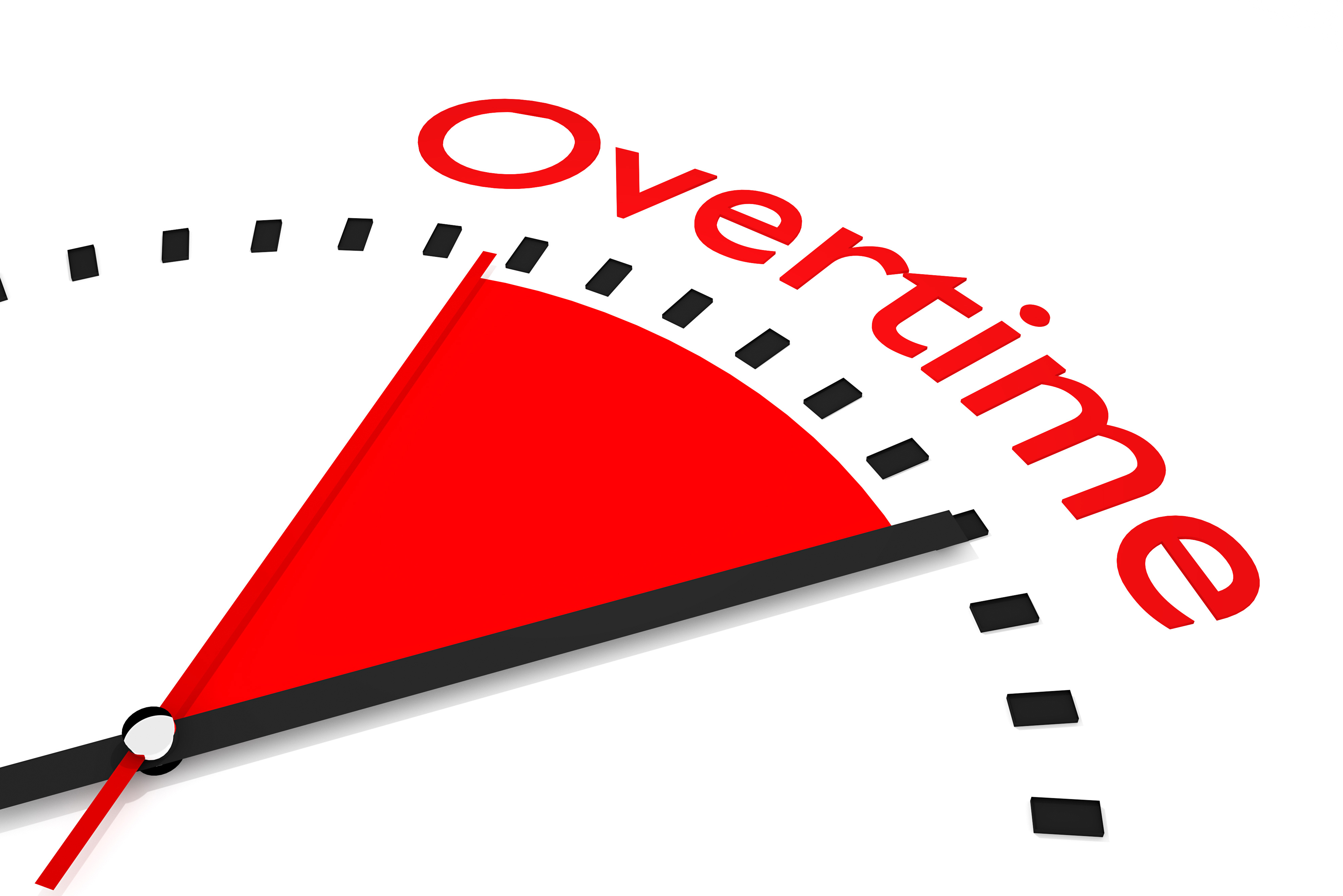Overtime Megan Nudes
Ever wonder about the ins and outs of work hours, especially when it comes to things like overtime pay or what a job really entails? It's a pretty common question, so many people are curious about how their time at work is counted and whether they're getting paid fairly for every minute spent on the clock. This can feel a little bit like a puzzle, especially with all the different kinds of jobs out there and the rules that go along with them.
For a lot of folks, the idea of "overtime" brings up questions about extra pay for extra hours, which is totally fair. But what really makes a job eligible for that kind of pay, and when might an employer not need to pay extra for those longer days? It's not always as simple as just working more than 40 hours in a week, you know. There are specific classifications for jobs, and these can really change how paychecks look, so.
This discussion will clear up some common misunderstandings about work duties, how certain roles are classified, and when rules around minimum wage and overtime might not apply. We'll look at the kind of work that someone like, say, Megan might be doing, and how that affects her pay, or even if there's a cap on how much work can be assigned. It's actually a lot about making sure everyone has a pretty good grasp of what's expected and what's fair, in a way.
Table of Contents
- What Kind of Duties Matter for Overtime?
- Megan's Job - Is It Non-Exempt?
- How Much Time is Spent on the Job?
- Commissioned Employees and Overtime
- Are Outside Sales Reps Exempt from Overtime?
- Do Meetings Require Pay for Exempt Employees?
- Is There a Limit to the Number of Work Hours?
- Ensuring Fair Compensation for Overtime
What Kind of Duties Matter for Overtime?
When we talk about whether someone gets paid overtime, a big piece of the puzzle is what they actually do day-to-day. You see, for a job to be considered "non-exempt" – meaning it's eligible for overtime pay – the person doing it really needs to be spending most of their time on tasks that are, well, non-exempt level duties. This means the kind of work that isn't considered high-level management or professional work, you know, the kind of stuff that typically gets paid hourly.
It's about the primary purpose of the role, in some respects. If someone is mostly doing tasks that are pretty standard, like clerical work, production line tasks, or routine customer service, then that's usually considered non-exempt. If they're spending a significant portion of their day on things that are more administrative or manual, then it's almost certain they should be getting overtime if they work extra hours. The law really wants to make sure that people in these kinds of roles are protected, so.
The key here is that "most of the time" aspect. It's not just about having a fancy job title; it's about the actual work performed. If someone's job description says they're a manager, but they spend nearly all their hours stocking shelves or ringing up sales, then their real duties might make them non-exempt, regardless of what their title suggests. This is a very important distinction that employers and employees alike should be pretty aware of, actually.
Megan's Job - Is It Non-Exempt?
Let's imagine a scenario with someone like Megan, for instance. She might have a job where, at first glance, she or her employer thought it was non-exempt. Why would that be? Well, it's often because a very significant portion of her daily work, or most of her employee's time, is spent on tasks that just don't fit into those exempt categories. This could mean she's doing a lot of routine tasks, or maybe her work is very closely supervised, which tends to be a hallmark of non-exempt roles.
Think about it this way: if Megan's main responsibilities involve following a set procedure for data entry, or if she's constantly on the phone assisting customers with basic inquiries, these are typically considered non-exempt duties. If she's not making high-level decisions, managing other people, or using advanced professional knowledge for the majority of her day, then it's pretty likely her job falls into the non-exempt category. This means she'd be eligible for overtime pay when she works more than the standard hours, which is a big deal, you know.
The perception of a job's status can sometimes be a bit off from the reality of its daily tasks. It's not uncommon for someone to think their role is one thing, only to find out that the actual time spent on specific duties tells a different story. So, for Megan, if most of her time is truly dedicated to those non-exempt duties, then the job should absolutely be classified as non-exempt, ensuring she gets the right pay for her extra efforts, anyway.
How Much Time is Spent on the Job?
The amount of time an employee spends on specific tasks is a really crucial element when figuring out their pay status. The rule of thumb, as we touched on, is that for a job to be truly non-exempt, most of the employee's time needs to be focused on those non-exempt level duties. This isn't just a casual suggestion; it's a very specific guideline that helps determine if someone is due overtime. It's about the actual work they are engaged in, basically.
Consider a situation where an employee, let's say, spends 80% of their day performing tasks that are clearly non-exempt, like operating machinery or processing paperwork. The remaining 20% might involve some minor supervisory tasks or a little bit of planning. In this scenario, because the vast majority of their time is on non-exempt work, their job would typically be classified as non-exempt. This means they are entitled to overtime pay for hours worked beyond the standard workweek, which is pretty straightforward, right?
The challenge sometimes comes in accurately tracking and defining "most of the time." It's not always a rigid percentage, but rather a general understanding that the core, principal duties are non-exempt. Employers really need to look closely at what their team members are actually doing on a daily basis, not just what their job title says, to make sure they're getting it right. It's about ensuring fairness and compliance with wage laws, after all.
Commissioned Employees and Overtime
Now, things can get a little bit different when we talk about employees who are paid primarily through commissions. The rules for these roles can sometimes diverge from the standard hourly or salaried employee setup, especially concerning minimum wage and overtime. It's not a blanket exemption for all commissioned roles, mind you, but there are specific conditions where these employees might be treated differently under the law, so.
A common example of where commissioned employees might be exempt is if they are outside sales representatives. This is a very particular classification. These aren't just any sales people; they are individuals whose primary duty is making sales, and they regularly work away from the employer's place of business. They're often out in the field, meeting clients, or making sales calls from various locations, which is quite distinct from someone who sells products from a retail store, for example.
So, if someone is a commissioned employee and they fit the definition of an outside sales rep, then the rules about minimum wage and overtime laws might not apply to them. This means that, unlike many other workers, they wouldn't necessarily be entitled to extra pay for working more than 40 hours in a week. It's a specific exemption that recognizes the unique nature of their work and how they are compensated, you know.
Are Outside Sales Reps Exempt from Overtime?
Yes, as a matter of fact, if the commissioned employees are genuinely outside sales representatives, they typically are exempt from minimum wage and overtime laws. This is a pretty significant distinction in employment law. It means that the standard protections that apply to many other workers, like the requirement to pay at least the minimum wage for all hours worked and time-and-a-half for overtime, just don't apply to them, which is kind of interesting.
To qualify as an "outside sales rep," an employee's primary duty must be making sales, or obtaining orders or contracts for services or for the use of facilities for which a consideration will be paid by the client or customer. And, crucially, they must be customarily and regularly engaged away from the employer's place or places of business. This isn't about occasionally working from home; it's about their usual work being conducted out in the field, pretty much all the time.
So, if Megan, for example, were a commissioned employee who spent most of her time driving to different client sites, demonstrating products, and closing deals, she would very likely fall under this exemption. In that case, her pay structure would be different, and the rules around overtime wouldn't apply in the same way they would for an hourly office worker, so that's a key difference.
Do Meetings Require Pay for Exempt Employees?
This brings up an interesting point about meetings for exempt employees, especially those who are outside sales reps. If these commissioned employees are indeed exempt from minimum wage and overtime laws, then typically, no additional pay is required for meetings they attend. This is because their compensation model is different; it's not based on an hourly wage where every minute needs to be accounted for, you know.
For an exempt outside sales rep, attending a sales meeting, a training session, or even a team gathering is generally considered part of their overall job responsibilities, which are compensated through their commission structure or a salary that already accounts for all duties. It's not seen as extra time that needs to be paid separately, because their role is viewed more broadly, in a way.
So, if Megan, as an exempt outside sales rep, has to come into the office for a weekly sales strategy meeting, the company wouldn't owe her separate pay for those hours. Her overall compensation, tied to her sales performance, is considered to cover all aspects of her job, including these kinds of gatherings. It's a fundamental difference between how exempt and non-exempt roles are compensated, actually.
Is There a Limit to the Number of Work Hours?
A question that comes up pretty often, especially when people are working long hours, is whether there's a legal cap on how many hours an employee can work. And the answer, which might surprise some, is that generally, there is no legal limit to the number of hours an adult employee can be required to work in a given day or week. This applies in most private sector jobs, which is quite a thing to consider.
While there are rules about overtime pay for non-exempt employees once they hit a certain number of hours (typically 40 in a workweek), the law doesn't say an employer can't ask someone to work 50, 60, or even more hours. It just means that if those hours go beyond the standard, and the employee is non-exempt, then the employer has to pay them at the overtime rate for those extra hours. It's about compensation, not about limiting the hours themselves, so.
There are, of course, some exceptions to this general rule. Certain industries, like transportation, or specific types of jobs that involve public safety, might have regulations on maximum work hours for safety reasons. But for the vast majority of jobs, the focus is on ensuring fair pay for all hours worked, rather than setting a hard limit on the total number of hours an individual can put in. So, in essence, an employer can ask Megan to work very long hours, but they just have to pay her correctly if she's non-exempt, you know.
Ensuring Fair Compensation for Overtime
Ultimately, the core idea behind all

Who is Eligible for Overtime Pay in Ohio? | Marshall & Forman

What is Overtime and How Does it Work? - ezClocker

ERS Bio | Overtime & Attendance Management